Happiness, enjoyment, and success. Those three words are almost interchangeable when it comes to fly fishing. If we’re going to enjoy ourselves on the water, and if we’re going to head home with a smile rather than a frown, we need to be successful; if not all the time, then at least on a fairly regular basis.
It’s actually pretty simple. “Success,” however we choose to measure it, leads directly to enjoyment and happiness. That’s just the way it works.
So what’s the single biggest impediment to fly fishing success? I suppose we could make the case that it’s our lack of awareness, or our inability to slow down and fit in with nature’s subtle rhythms, or our difficulty in choosing the right fly or making the best possible presentation. At the end of the day, though, the highest hurdle for most beginning and intermediate anglers is almost always their fly casting.
Back in October, I had a chance to watch John Juracek, who is a truly incredible fly caster and instructor, take a dozen of our School of Trout students through the entire fly casting process. Before we started the week-long class, John and I talked about how much time we should spend on casting, as opposed to all the other vital elements we had to address. Since it’s a zero sum game — the time we spent casting was subtracted from the time we had for teaching everything else — I was a little nervous about going too heavy on the casting instruction. John, on the other hand, stuck to his guns. As he reiterated over and over, the foundation for good fly fishing is good fly casting. And as much as I wanted to argue with him, and as much as I wanted to steal a little more time for all the other important elements of the sport, I just couldn’t do it.
John was right. If you can’t cast, then your options as a fly fisher are incredibly limited, your odds for success plummet, and your opportunities for enjoyment shrink and shrink and then shrink some more. If you can cast, though — if you can put that fly right where you’re aiming at a variety of different distances — then every other aspect of your angling can start to move in a positive direction.
More Like This
As John also pointed out to the SOT students, there’s something awfully special about the simple act of casting a fly rod. There’s an inherent grace and beauty to good casting that almost always shines through, and that can’t help but make our experience on the water more enjoyable.
So how do we become proficient casters? And how do we avoid all the common mistakes that plague poor casters? In the interest of keeping things short and sweet, I’d suggest the following steps:
First, take the time to watch talented casters and learn what a good fly cast actually looks like. While there are certainly exceptions, a well-executed cast typically unrolls in a straight line in front of, and also behind, the angler. The cast unfurls in a U shape or a V shape, and you can literally see the smooth transfer of power from the caster through the rod and then down through the line.
A quick aside: It used to be that you had to live near top-notch casters or famous rivers in order to see consistently good casting. But with the proliferation of videos and short fly fishing films, most of us can now watch talented anglers like Steve Rajeff, Joan Wulff, Pete Kutzer and John Juracek on our laptops or our smart phones.
Once you have a feel for what your cast should look like, you’ll want to focus on proper form. That means keeping your fly line moving in a straight path, accelerating your cast smoothly to a full stop, and making sure that you adjust the length of your stroke to the length of your cast. (The basic rule is that a short cast requires a short stroke; while a longer line needs a longer stroke.)
As for the obvious things to avoid … you should minimize excess movement in your wrist and your elbow, steer clear of applying too much power too early in your casting stroke, and avoid casts where the rod tip, and subsequently the line, follow a rounded or elliptical path through the air. Oh, and if you find yourself pushing and pulling your arm — if you notice that your elbow is moving forwards and backwards rather than up and down — then take a break and re-focus on your fundamentals.
There’s also one final step, and it’s absolutely vital. Please make sure you take the time to practice. Find an open spot free from hazards like tree branches, poisonous snakes, and overhead power lines and get to work on your casting.
How much should you practice? As much as you possibly can. Ideally, that’s once or twice a week, week in and week out, for at least half an hour. You’re trying to create strong fundamentals, and lock in good form, and develop the kind of muscle memory that will keep you on solid footing for the foreseeable future. You want to get to the point where you don’t need to think about your stroke at all while you’re out on the water.
What about casting lessons? From where I sit, they can be incredibly helpful. Still, you’ll want to make sure that your instructor is competent, and even more importantly, that you’re willing to listen. You can put serious time and energy into working with an ace instructor, yet if you don’t take the lessons to heart, and if you don’t practice what you learn, you won’t get the results that you’re hoping for.
Who would I recommend as a casting instructor? While there are a number of exceptional options out there, I’m biased towards the aforementioned Mr. Juracek, who is not only technically sound, but who has broken casting down to its most basic elements and made it far easier to understand and excel. You can reach John through his website at JohnJuracek.com.

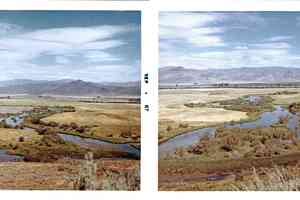



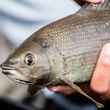

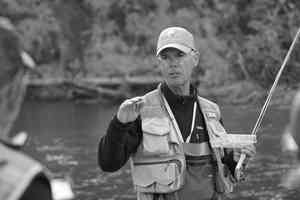





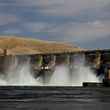




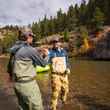

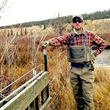

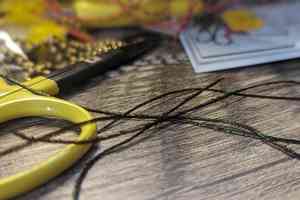
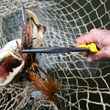
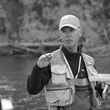

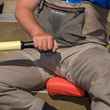
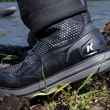

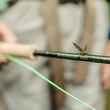
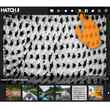
Comments
DARRELL KELLY replied on Permalink
I was lucky because back in the 1990s I had the fortunate gift of being in the right place at the right time. Doug Swisher, Gary Borger, George Harvey, and finally Lefty Kreh would be my instructors. And people let me tell you that when Lefty stopped my hand there 2 mark . It was as if God himself touched me. Talk about power and knowledge all from 1 touch..Forever grateful to them all..
Pages